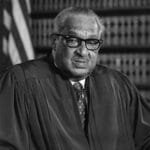
Ruth Bader Ginsburg, known affectionately as “RBG” or “The Notorious R.B.G.,” was a towering figure in American law, serving as an Associate Justice of the U.S. Supreme Court from 1993 until her death in 2020. Born Joan Ruth Bader on March 15, 1933, in Brooklyn, New York, Ginsburg’s life and career epitomized the struggle for and advancement of gender equality and civil rights. Here’s a detailed summary of her life and judicial tenure:
Early Life and Education:
- Family and Education: Ginsburg grew up in a working-class neighborhood in Brooklyn. Her mother, Celia Bader, died of cancer the day before Ginsburg’s high school graduation. This loss profoundly influenced her life, pushing her towards academic excellence. She studied at Cornell University, where she met her future husband, Martin Ginsburg. Graduating first in her class in 1954, she moved to Harvard Law School, one of only nine women in a class of about 500.
- Legal Education: After transferring to Columbia Law School to follow her husband’s career move, she graduated joint first in her class in 1959. Despite her academic achievements, she faced significant gender discrimination in seeking employment.
Early Legal Career:
- Clerkship and Academic Work: Unable to secure a clerkship due to her gender, she worked as a law clerk for a U.S. District Judge in New York. She then entered academia, teaching at Rutgers University and later at Columbia Law School, where she became the first tenured female professor.
- Advocacy for Women’s Rights: Ginsburg co-founded the Women’s Rights Project at the American Civil Liberties Union (ACLU) in 1972. She argued several landmark cases before the Supreme Court, focusing on gender discrimination, which helped to establish legal precedents for equality under the law.
Judicial Career:
- U.S. Court of Appeals: In 1980, President Jimmy Carter appointed her to the U.S. Court of Appeals for the District of Columbia Circuit, where she served until her Supreme Court appointment.
- Supreme Court Appointment: In 1993, President Bill Clinton nominated Ginsburg to the Supreme Court, where she was confirmed by a vote of 96–3, reflecting broad bipartisan support for her legal acumen and moderate judicial temperament.
Supreme Court Tenure:
- Judicial Philosophy: Ginsburg was known for her pragmatic liberalism, focusing on incremental change and consensus-building. She often advocated for gender equality, voting rights, and the rights of workers, aligning with progressive views but always through rigorous legal analysis.
- Notable Opinions:
- United States v. Virginia (1996) – Ginsburg wrote the majority opinion striking down Virginia Military Institute’s male-only admission policy, a landmark for gender equality.
- Olmstead v. L.C. (1999) – She authored the opinion requiring states to provide treatment in the least restrictive setting for individuals with disabilities, advancing the Americans with Disabilities Act.
- Ledbetter v. Goodyear Tire & Rubber Co. (2007) – Although she was in the dissent, her disagreement with the Court’s decision on pay discrimination led to the Lilly Ledbetter Fair Pay Act of 2009, which expanded protections against pay discrimination.
- Dissenting Opinions: Ginsburg’s dissents were notable for their eloquence and passion, often becoming rallying cries for liberal causes. Her dissent in Shelby County v. Holder (2013), where the Court struck down key provisions of the Voting Rights Act, was particularly poignant, warning of the implications for minority voting rights.
Cultural Impact and Later Years:
- Public Figure: Ginsburg became a cultural icon, especially among younger generations, due to her sharp legal mind, her fight for gender equality, and her tenacity in continuing to serve despite health challenges. Her life inspired books, documentaries, and even a feature film.
- Health and Final Years: Ginsburg’s health became a national concern, with multiple bouts of cancer and hospitalizations. Despite this, she continued to serve with vigor, often participating in cases remotely when necessary.
- Death and Legacy: Justice Ginsburg died on September 18, 2020, at the age of 87. Her death led to widespread mourning and calls for her seat to be preserved for a nominee by the next President, reflecting her immense influence on American legal and cultural landscapes.
Legacy:
Ginsburg’s legacy is multifaceted:
- Gender Equality: Her work both before and on the Supreme Court dramatically advanced gender equality under the law.
- Legal Pragmatism: She believed in moving law forward through careful, often incremental, change rather than judicial activism.
- Cultural Icon: Her life inspired many to pursue legal careers, especially women, and she became a symbol of persistence and advocacy for civil rights.
Her life story, from facing discrimination to becoming a champion of equality, provides a narrative of progress in American society, making her one of the most revered justices in the nation’s history. Her impact continues to be felt in law, culture, and the ongoing fight for justice and equality.





